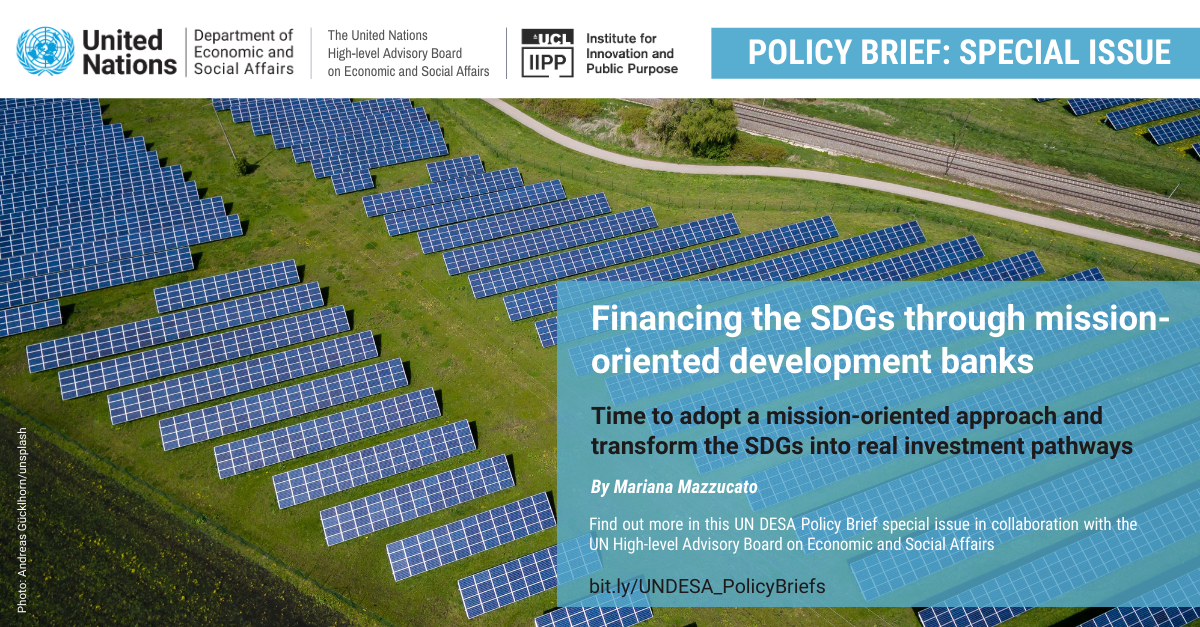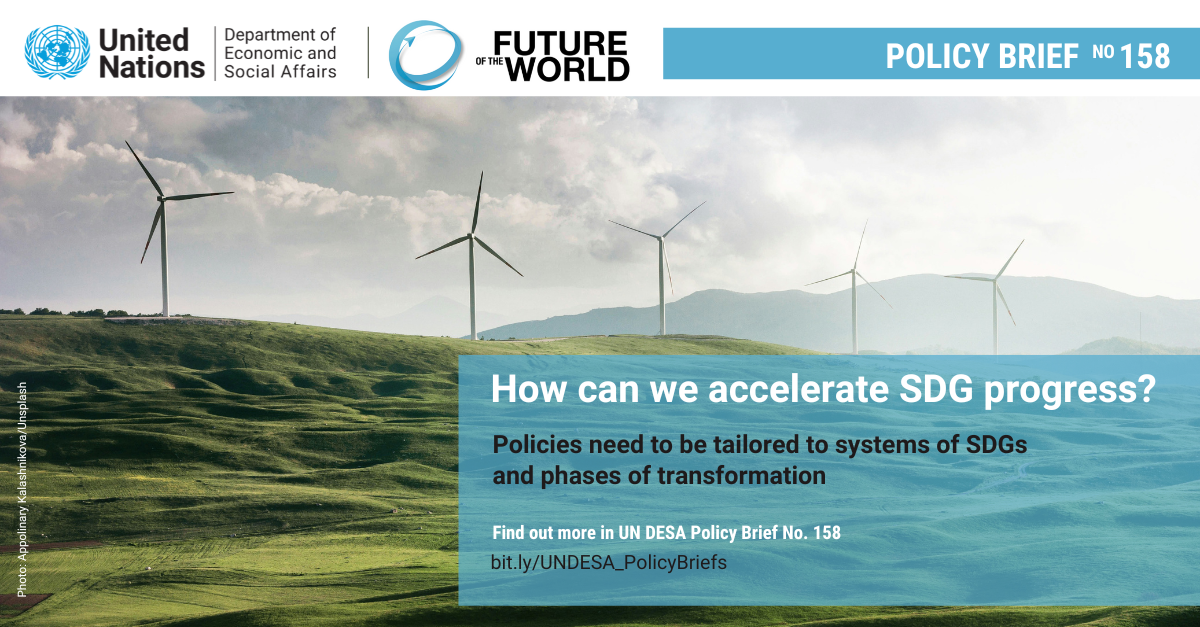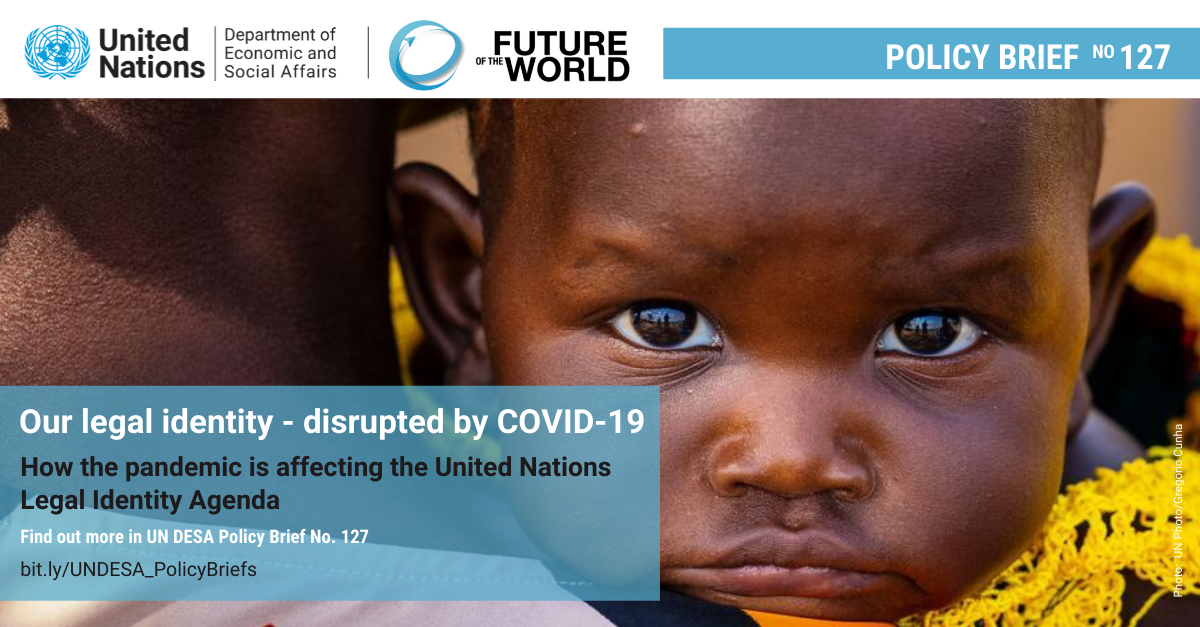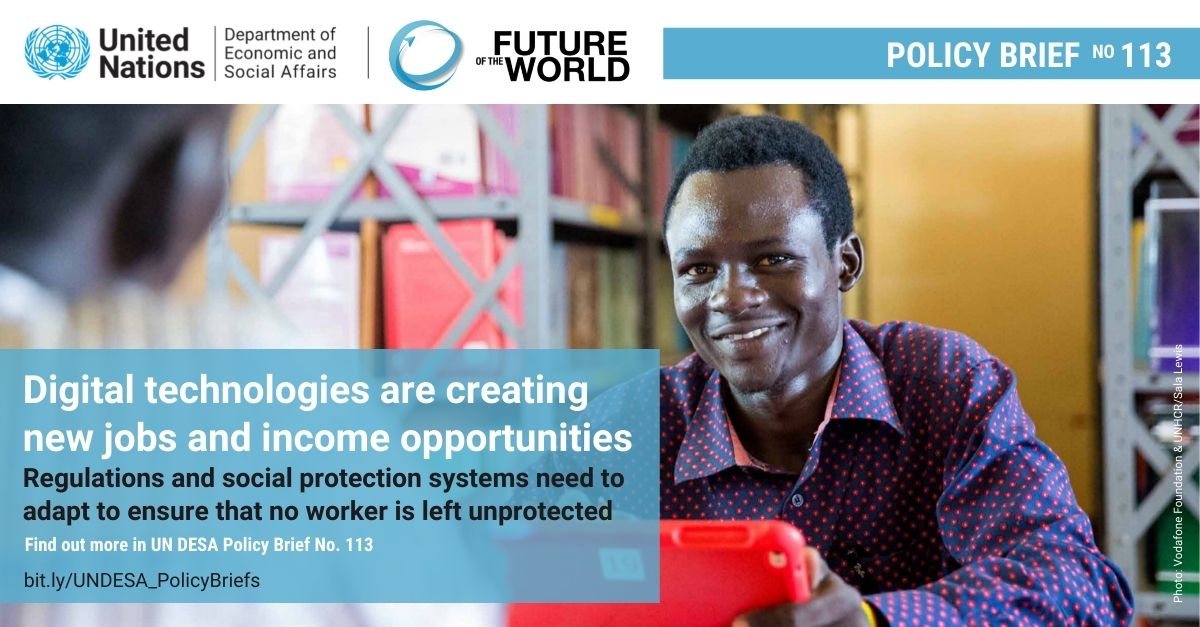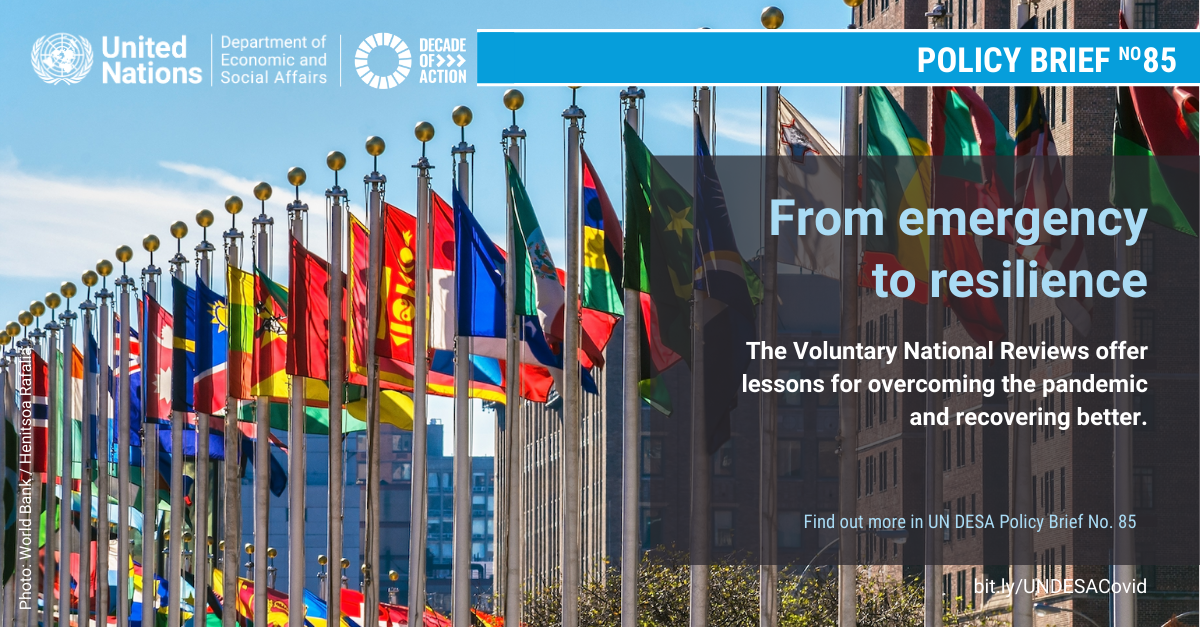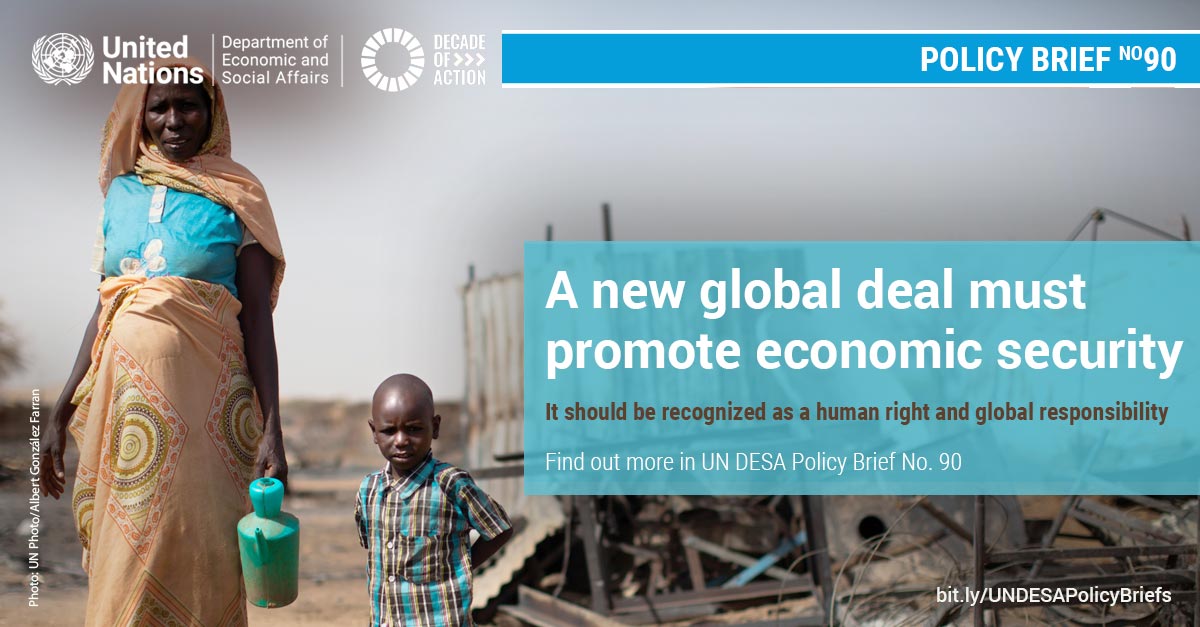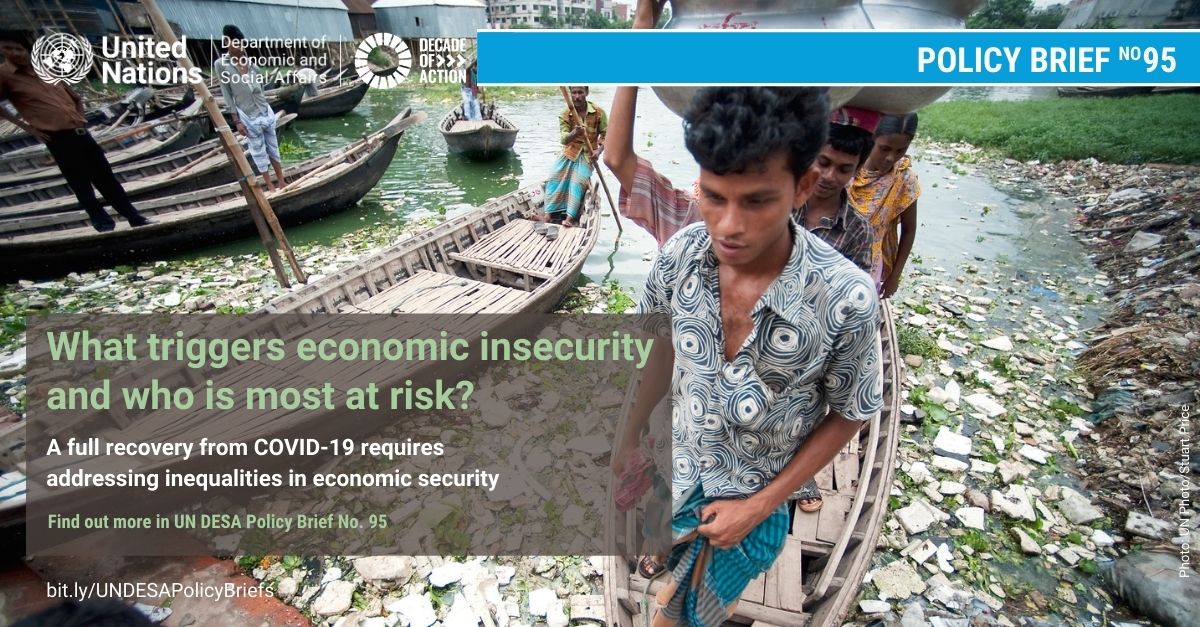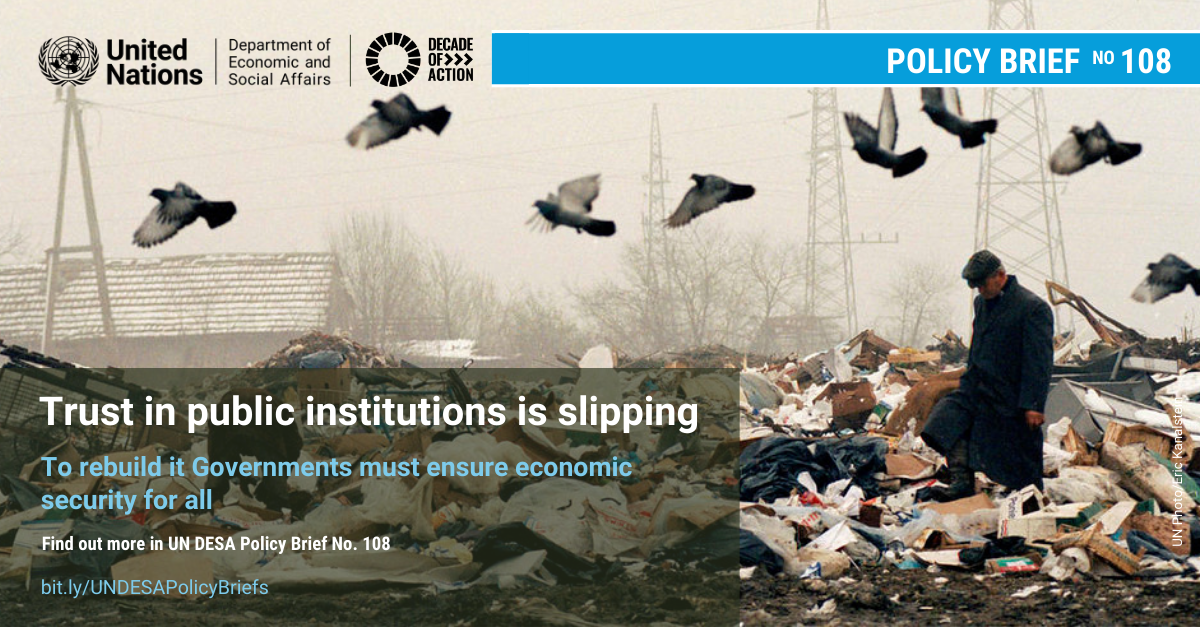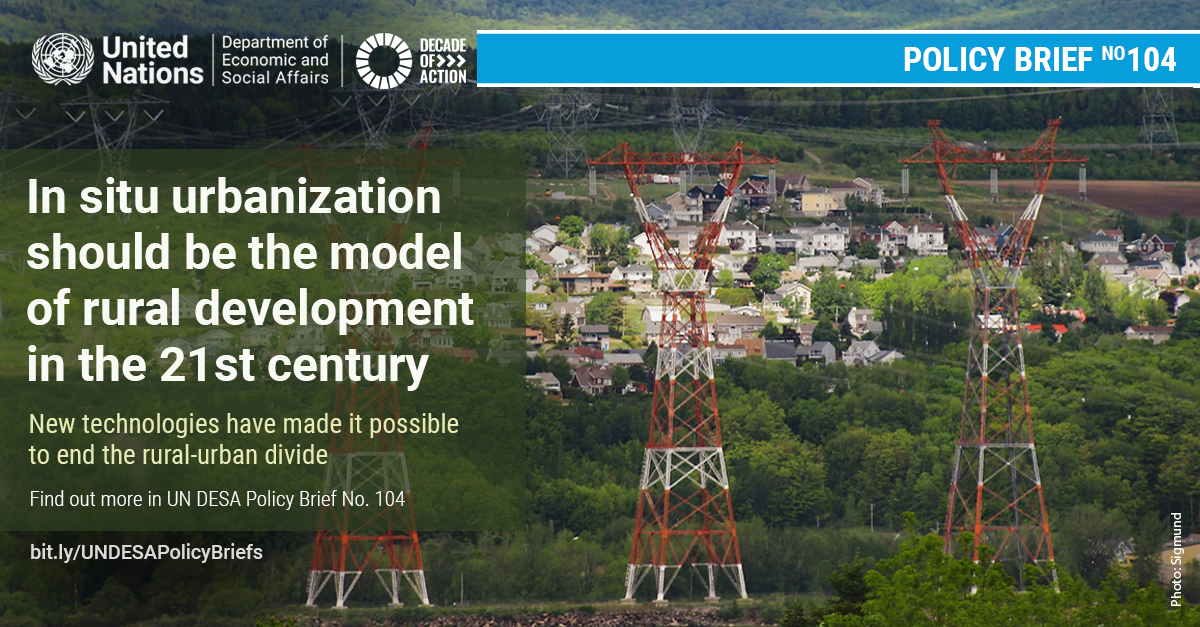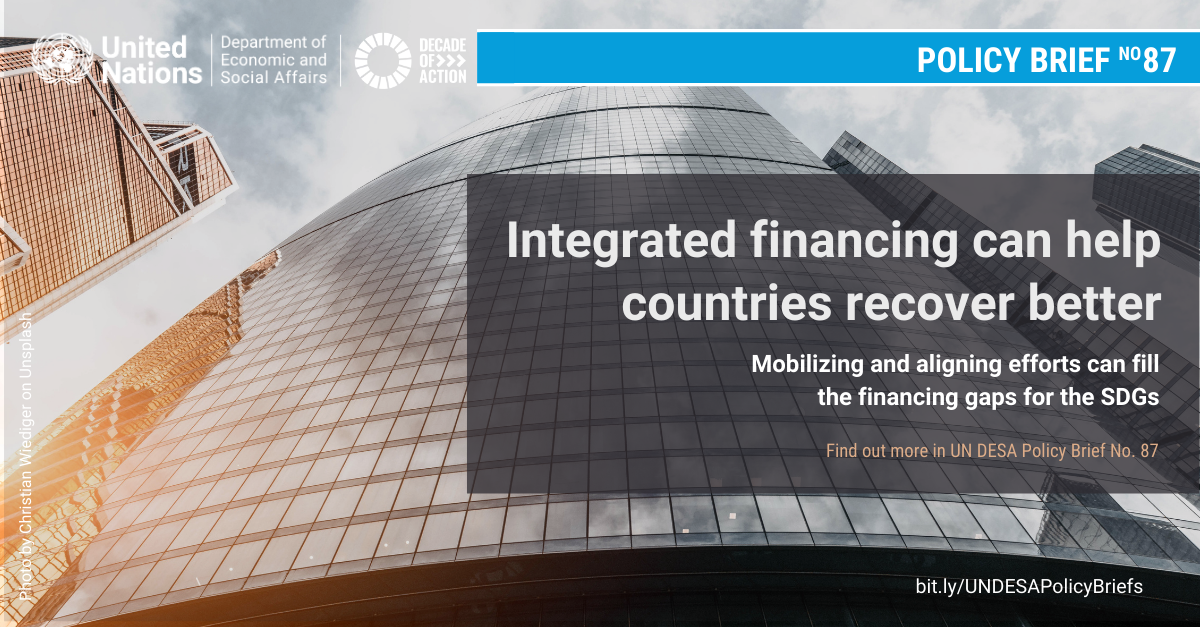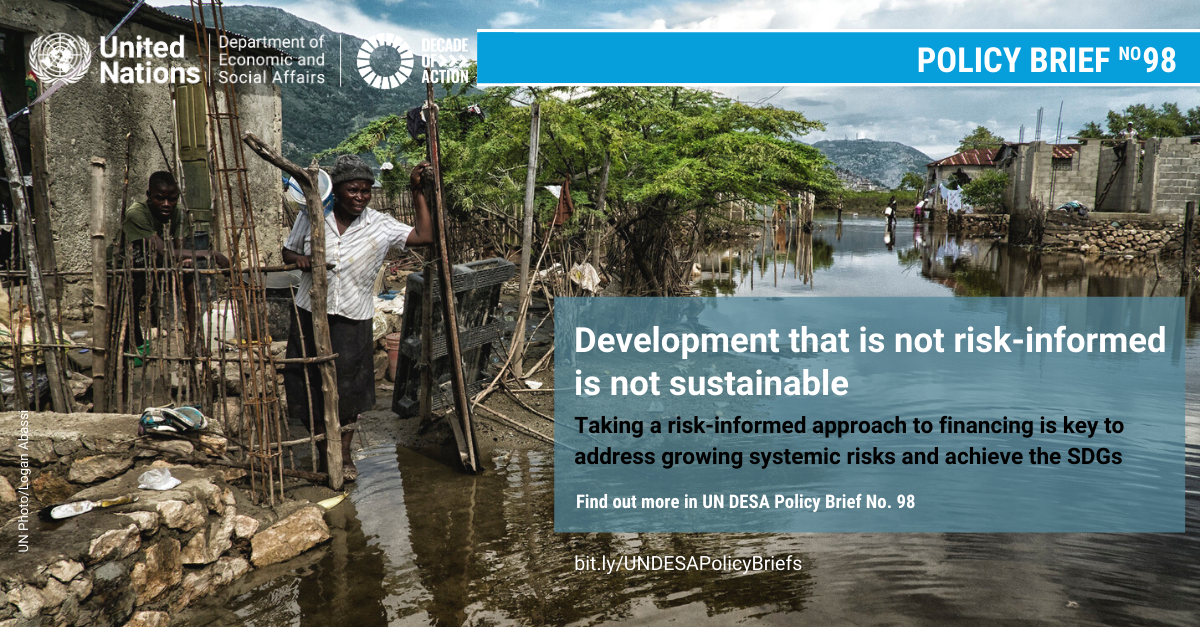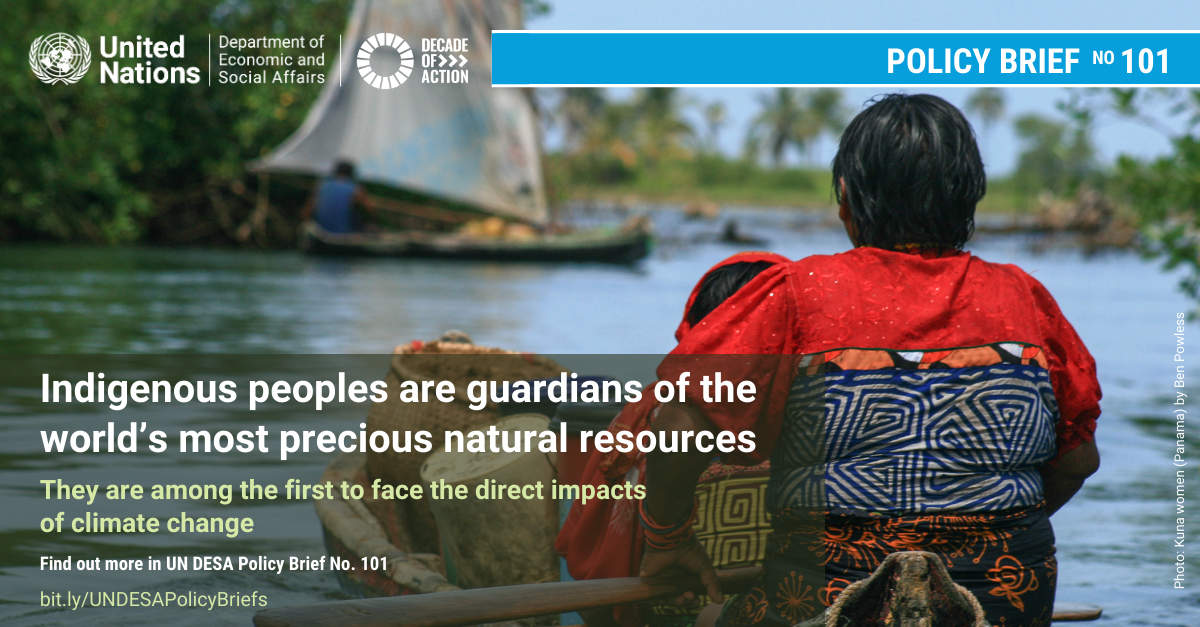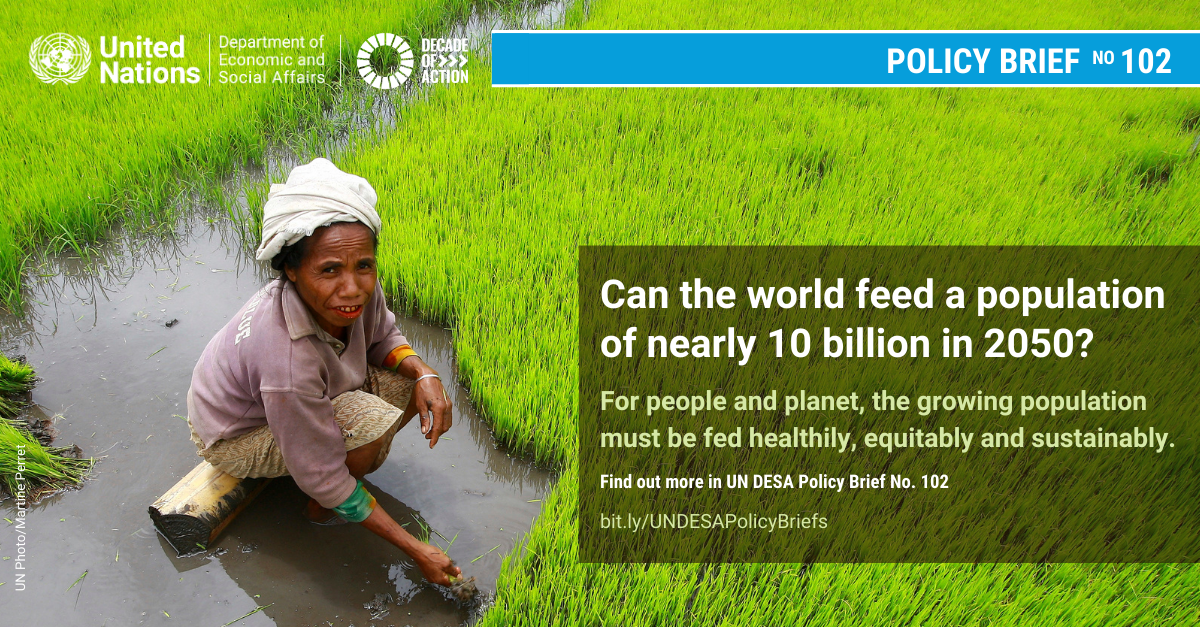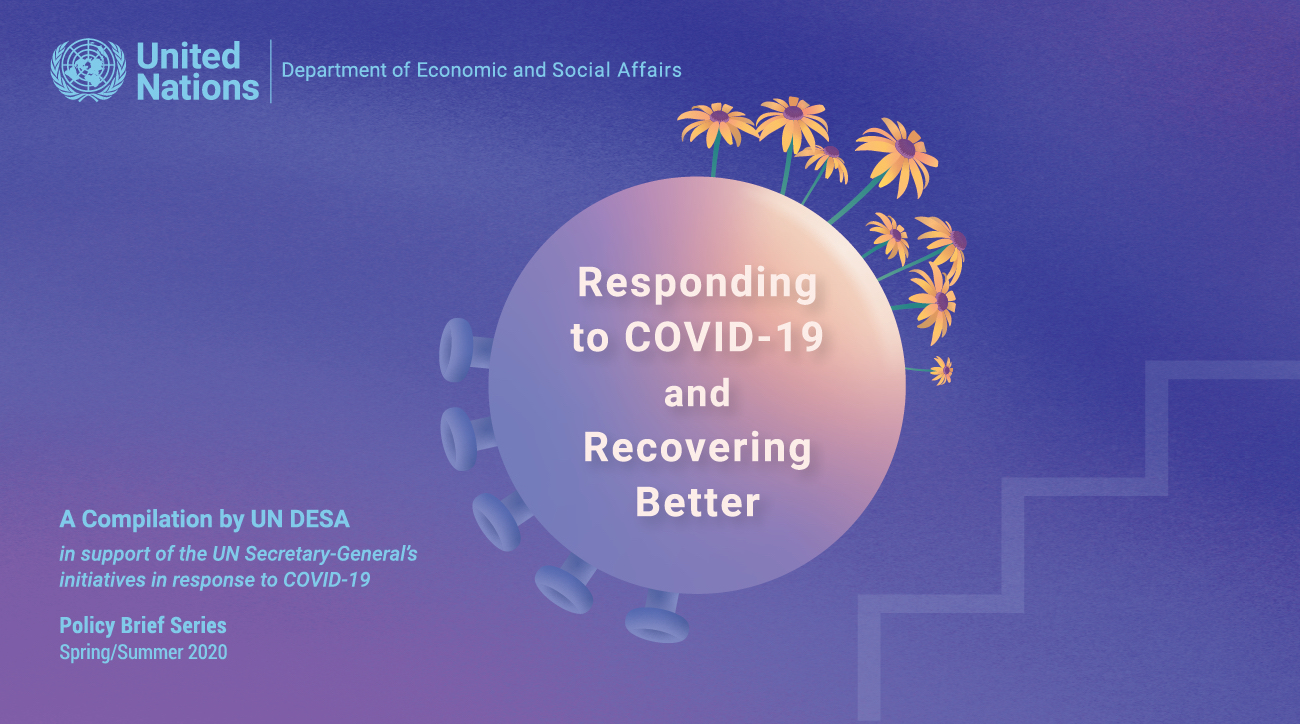
UN DESA experts are working to help decision makers around the world navigate tough choices and to find ways to recover better from the COVID-19 crisis and prepare for complex and compounded risks in today's interconnected world.
Watch this space for the latest research, analysis and policy advice from UN DESA, an effort to support and complement the United Nations Secretary-General’s initiatives in response to the COVID-19 crisis, Decade of Action to deliver the Sustainable Development Goals and call by the Member States to advance Our Common Agenda.
Special Issue
In collaboration with the United Nations High-level Advisory Board on Economic and Social Affairs
Future of the World

This series aims to provide UN DESA’s foresight analysis to advance our preparedness for future challenges and crises, and to reduce risks and make our systems more resilient. The series is part of the Future of the World initiative launched in the fall of 2021, which will also feature online policy dialogues with the authors of the policy briefs and related experts in connection with the topics of the briefs.
Previous Policy Briefs (see in a list format)
Recovering better and supporting the Decade of Action (July 2020 – June 2021 Series)
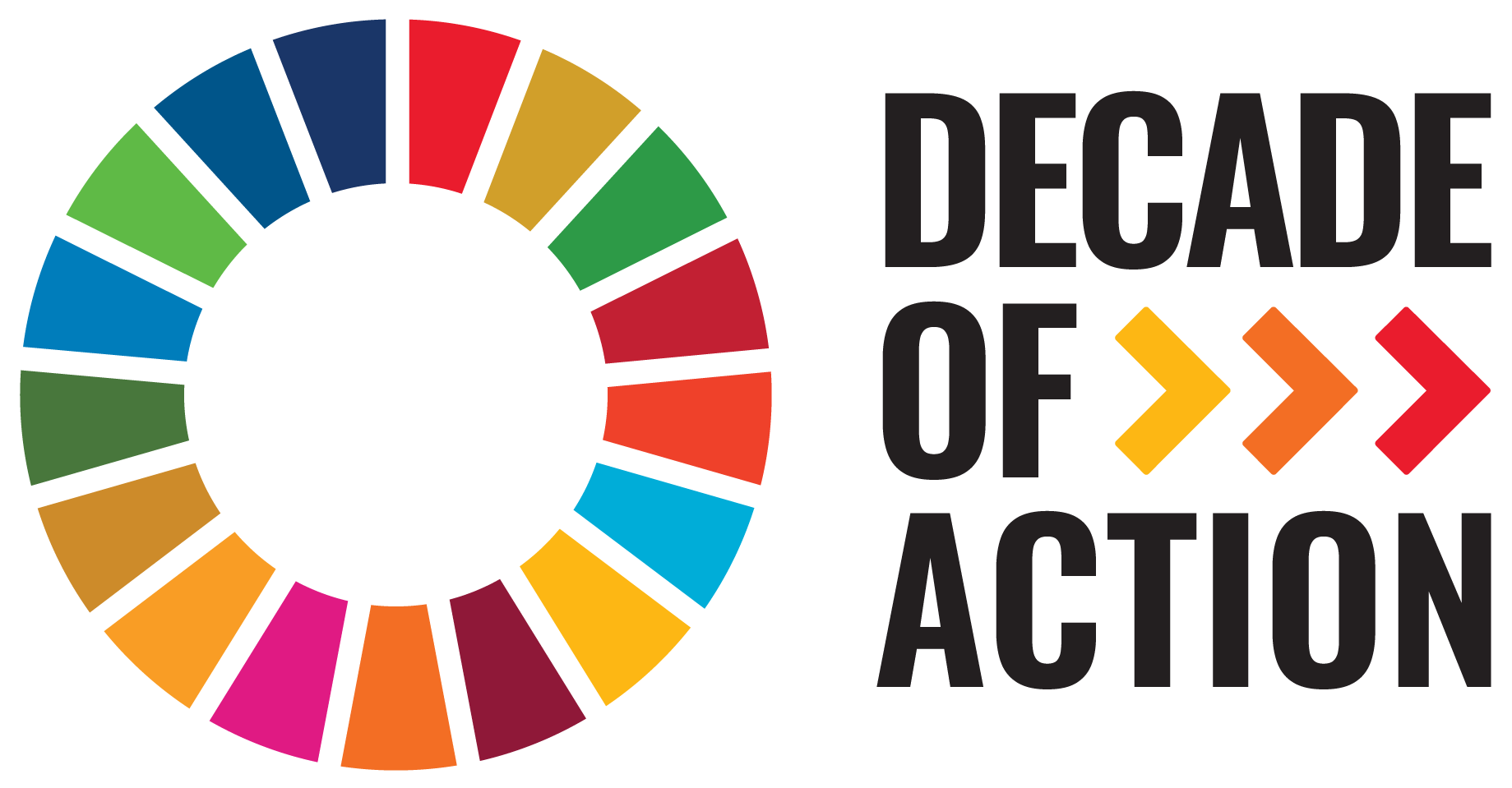
This series features UN DESA’s analysis and policy recommendations with the aim to recover better from the COVID-19 crisis and ensure a better and sustainable recovery to meet the promises of the 2030 Agenda for Sustainable Development.
Jump to sections by clicking on the icons below
SDG progress and implementation
Economic insecurity
Rural development
Data, governance and digital technologies
Sustainable financing and investment
Inclusive, sustainable and green recovery for all
Socioeconomic impact and response to COVID-19 (April – June 2020 Series)
Responding to COVID-19 and Recovering Better is a compilation volume of UN DESA’s policy brief series released during the period of April-June, focusing on the economic and social impact of COVID-19.
It presents detailed analysis and solid evidence needed for effective decision-making on a number of critical social and economic issues. It also presents key policy recommendations to support the Secretary-General's initiatives in response to COVID-19 and help the international community to navigate the policy choices ahead. Individual policy briefs are also available here.

